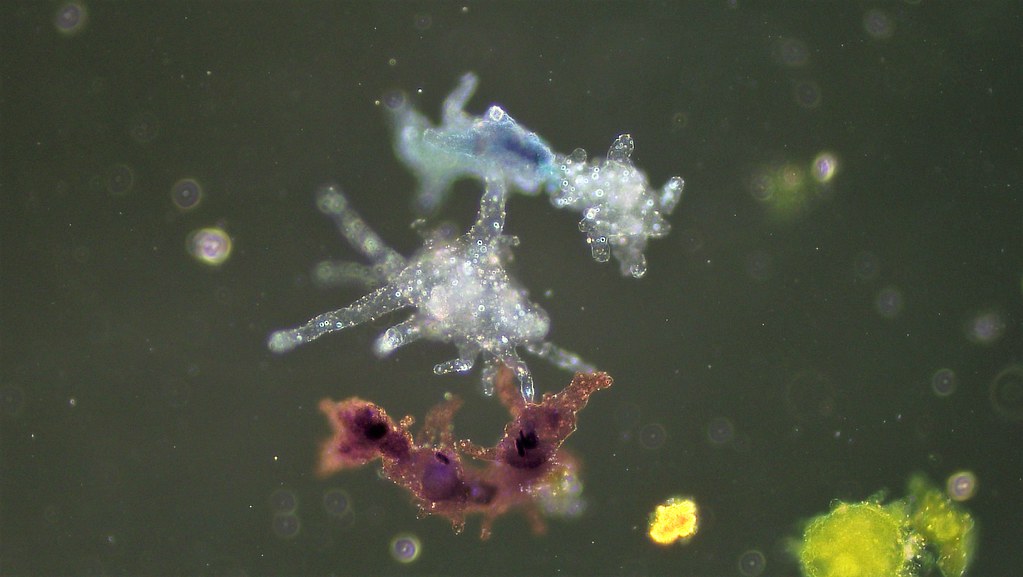Brain Eating Amoeba. That sure sounds like the title of a B-list horror flick, replete with a screaming gal, dashing man clad in a suit and a clunky animatronic, all set in monochrome tint. The news might lead you to believe the same with its plethora of terrifying accounts; most recently, on Sept. 4, a child in Arkansas died as a result of microbial infection—tragic and horrifying, no doubt, but fortunately avoidable.
First, though, we must discuss a more sobering topic. On Sept. 4, 2023, a 16-month-old boy died after contracting an infection of Naegleria fowleri. Colloquially known as the “brain-eating amoeba,” Naegleria fowleri is a supremely rare and rather difficult microbe to ingest. Officials have announced that the boy was likely exposed to the amoeba at the Country Club of Little Rock splash-pad. Arkansas’ Department of Health claimed several samples of the pad’s water for analysis—one came back positive for Naegleria fowleri, confirmed by the Centers for Disease Control (CDC). The club has since ceased operation of its aquatic amenities for an unspecified period of time.
To paraphrase Sun Tzu, he who knows his enemy need not fear the result of a hundred battles. If you wish to vanquish your enemy – in this case, our amoebas – you must first know their modus operandi. Primary amebic meningoencephalitis (PAM) is the disease begot by Naegleria fowleri that is almost always fatal; according to the CDC, a mere 2.55% recorded cases survived PAM. It is characterized by severe frontal headaches, fever, nausea, vomiting, and during later stages: stiff neck, seizures, altered mental faculties, hallucinations and entering coma. All these symptoms are a result of Naegleria fowleri infection destroying brain tissue, leading to swelling and eventual death—even with early treatment, PAM is challenging to identify and even tougher to treat.
Sun Tzu also said that the most definitive victories are won without war; likewise, your best chance of surviving brain-eaters is to simply avoid them. The CDC does classify PAM as a rare disease, evidenced by the relatively miniscule 157 confirmed cases between 1962 and 2022. Odds are that you don’t have PAM even if you’re enduring similar symptoms—bacterial meningitis is an affliction near-indistinguishable in manifestation. While Naegleria fowleri is a particularly lethal little bugger, its low population and predictability curb its virulence.
Naegleria fowleri is thermophilic, meaning that it loves heat, and best survives in warm lakes and rivers—all devoid of salt, allowing amoebas to grow unchecked. You might find this specific strain – other strains of Naegleria do not infect – in warm freshwater, geothermal water (hot springs and the lake), warm water discharge from production plants, untreated geothermal water sources, poorly maintained recreational pools, tap water, water heaters and soil.
You’re most at risk for PAM during warmer months like July, August, and September—gladly, though, it isn’t contagious. Naegleria fowleri can also only enter and infect your brain through your nose; that’s right, you could drink a brain-eating amoeba smoothie and emerge unscathed, though I can’t imagine it would taste very good. The amoeba travels up your nasal passage and into your brain where it wreaks havoc—any situation where you put your head underwater in amoeba infested waters has the potential to get you sick. Additionally, cleansing your nasal cavities with contaminated water also has the potential to blight you.
Don’t let such a threat deter you from doing what you love, though. You can’t contract PAM from saltwater, meaning the sea is entirely safe, and the most you’ll get from a properly chlorinated pool is a view of some toddler’s urine floating around you. There are a thousand other aquatic ailments that are far more liable to get you than this amoeba—just make sure water isn’t going up your nose, and you’re golden.
If your fears still aren’t assuaged, know this: I very loosely based this article on Sun Tzu’s “Art of War,” and Sun Tzu didn’t die from Naegleria fowleri. Now that’s an ironclad argument if I ever heard one.















